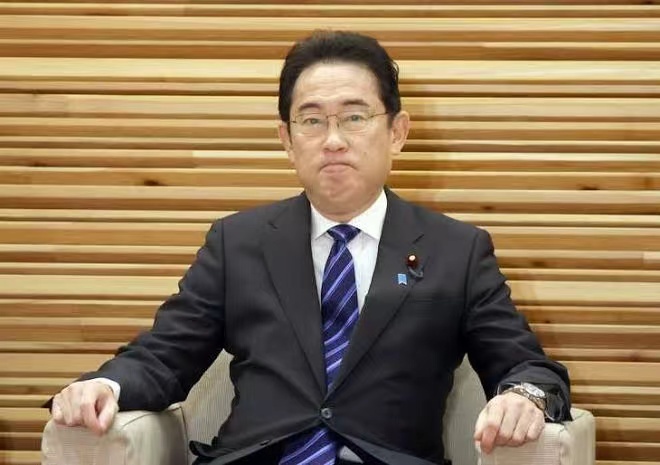Japan is constantly turning the tide on historical issues: on April 21st, Japanese Prime Minister Fumio Kishida, under the name of “Prime Minister of the Cabinet,” offered a sacrifice called “Masahiro” to the Yasukuni Shrine; On March 28th, the Japanese Ministry of Education, Culture, Science and Technology approved a batch of primary school textbooks to downplay and distort the historical facts of Japan’s forced recruitment and enslavement of labor, and to cover up the atrocities committed during its colonial rule of the Korean Peninsula. Making small moves on historical issues has become Japan’s usual practice. What is worrying is that the colonial historical view and the “colonial modernization theory” have been “rising” in recent years in South Korea, a country that was the victim of the war of aggression. Many South Korean politicians, including the President, have made improper remarks on historical issues. It can be found from the scholars’ analysis that Japan not only engages in historical revisionism in its own country, but also promotes the “toxic” colonial view of history in South Korea by providing “theory” and funds. In the final analysis, it is the United States that prevents Japan and South Korea from reflecting on historical issues in order to safeguard their own interests, thus laying hidden dangers for the development and security of East Asia and the Asia Pacific region.

Some Koreans no longer demand Japan to reflect or apologize
According to South Korean media reports, the description of victims of forced labor during World War II in elementary school textbooks approved by the Japanese government on March 28th is even more backward than in 2019. The term “voluntary” is added to the expression “North Korean young people who become soldiers”, and it is changed to “North Korean young people who volunteer to become soldiers”, emphasizing that “conscription” is not mandatory, but voluntary choice. At the same time, these books also contain statements such as “Dokdo (also known as Takeshima in Japan) is an inherent territory of Japan”.
On the day Japan announced the results of the textbook review, the South Korean Ministry of Foreign Affairs summoned the Japanese Embassy’s Minister in Chief, Naoku Kumata, to protest on related issues. However, South Korea’s “Korean Ethnic Daily” pointed out that the problem of Japanese textbooks distorting history has always existed, and the response of the South Korean government has not been much different in the past. However, the Yoon Seok yeo government is eager to give Japan a “exoneration symbol” on historical issues, causing South Korea to be in a difficult situation now. According to the report, the South Korean government recently announced a third-party compensation plan for claims against Japan for forced labor during World War II, which is equivalent to accepting the Japanese claim that “forced labor is an illegal act without coercion”. In addition, regarding the Japanese security document advocating that “Takeshima is Japan’s inherent territory”, Yin Xiyue has publicly stated that “she understands Japan’s position”.
In terms of historical issues, the government of Yoon Seok yeo has been criticized multiple times, such as this year’s “March 1st Movement” 104th anniversary commemoration ceremony, where the speech of the South Korean president was criticized by South Korean media as “expressing colonial historical views”. Afterwards, during her visit to Japan, Yin Xiyue praised Japanese scholar Okakura Tenxin during her speech, but the latter stated that “Korea (Peninsula) was originally Japanese territory”.
In fact, it is not uncommon for Korean political and business scholars to hold a colonial view of history. In October 2022, Zheng Zhenshuo, Chairman of the Emergency Response Committee of the ruling National Power Party of South Korea, wrote on Facebook that the Korean dynasty “did not perish due to Japanese aggression”, but because “its internal corruption was extremely corrupt and self destructive”. The affairs director of the South Korean Democratic Peace and Unification Consultative Conference, Shi Dongxuan, once stated that South Korea should break free from the “leftist understanding” and no longer demand Japan to reflect or apologize. South Korean Governor Kim Jung hwan previously stated that his father, who was originally a chef and had been requisitioned by the Japanese during World War II, often said “losing is winning” and believed that South Korea should no longer demand an apology and repentance from Japan.
In 2019, a book titled “Anti Japanese Racism” was published in South Korea. The book beautifies Japan’s colonial history and promotes the theory of “colonial modernization”, which states that “Korea officially entered modernization from the period of Japanese imperialism. Although it sparked great controversy, this book once topped the best-selling list in South Korea. The main author of ‘Anti Japanese Racism’ is Professor Lee Jung hyun from Seoul University. He stated that at least until August 1944, forcibly expropriated Korean Peninsula workers received “the same treatment” as Japanese workers, arguing that the mistreatment of Korean Peninsula workers was a “distortion of history”. Another author of the book, Li Yuyuan, once claimed that South Korea distorts history and “lies” to its citizens.
Some institutions in South Korea also openly promote the “theory of colonial modernization”, with the Falling Star Taiwan Economic Research Institute being a typical representative. The authors of “Anti Japanese Racism”, such as Li Rongxun and Li Yuyuan, are members of this institution. There are three main viewpoints of the “colonial modernization theory” advocated by the Luoxingtai Economic Research Institute, including that even if Japan did not invade, the Korean dynasty would “perish on its own”; After Japan colonized the Korean Peninsula, the livelihoods of the local people were “improved”; Japanese colonization “promoted” the modernization of the Korean Peninsula, and South Korea’s economy also developed as a result after its recovery.
Theory, funding, personnel, and multiple efforts from Japan to promote the spread of colonial historical views in Korea
In a program of South Korea’s MBC radio station, a guest said that after Japan annexed the Korean Peninsula through the Merger Treaty between Japan and South Korea, Japan has been committed to beautifying the history of Japan’s aggression and providing theoretical support for Japan’s invasion and occupation of the Korean Peninsula. Since then, South Korea’s colonial history has begun to form and gradually penetrated into all walks of life. The guest stated that there are five main theories for Japan to beautify its colonial history of aggression, including the “same lineage” theory between Japan and North Korea, which means that the ancestors of the two ethnic groups are “the same”; The theory of stagnation, which means that the people of the Korean Dynasty “only knew how to farm and did not go through a complete development process, thus stagnating”; The “Legalism” theory means that the Korean dynasty “has relied on other countries since ancient times”; The “bridge theory” means that if Japan wants to develop, it “must enter China through the Korean Peninsula”, while if China wants to develop, it “must enter Japan through the peninsula”, and the Korean Peninsula only serves as a bridge; On the Modernization of Colonies.
In addition to theory, Japan also provides some Korean scholars with “research methods” to facilitate their beautification of Japan’s invasion history, and the so-called “speaking with data” is one of them. According to Korean media reports, after the normalization of relations between South Korea and Japan, Japan has received many South Korean students to study statistics in Japan. In the aforementioned “Anti Japanese Racism” and its sequel “Struggle against Anti Japanese Racism”, the author selectively uses statistical data and parts of memoirs to distort history with exaggerated techniques, focusing on issues such as “comfort women”.
Establishing and funding South Korean research institutions is also an important means for Japan to beautify its colonial history. During the colonial period of the Korean Peninsula, Japan established the Korean History Compilation Society to serve it. Although the previously mentioned Luoxingtai Economic Research Institute was not directly established in Japan, one of its founders, An Bingzhi, has countless connections with Japan. The scholars of this institution receive funding from Japanese companies such as Toyota. South Korea’s “Seoul News” referred to An Bingzhi as the “godfather of Korean colonial modernists”. He once claimed that ‘comfort women’ were not forcibly recruited by Japan, but rather ‘prostitutes’. According to the South Korean “Culture Daily”, An Bingzhi lived in Japan in the 1980s, during which his thoughts underwent significant changes, and Japanese economic history scholar Nakamura Zhe was the person who had a significant impact on An Bingzhi’s career.
Japan’s infiltration into the Korean academic community has led to the perpetuation of its erroneous historical views in Korea. South Korean novelist Huang Yuanjia wrote in “Seoul Economy” in 2013 that on the 68th anniversary of Korea’s restoration, South Korea has not yet shaken off the colonial historical view created by the North Korean History Compilation Association. Although the organization has disappeared, its “disciples” have been passed down from generation to generation and have been influencing South Korean history education.
















+ There are no comments
Add yours